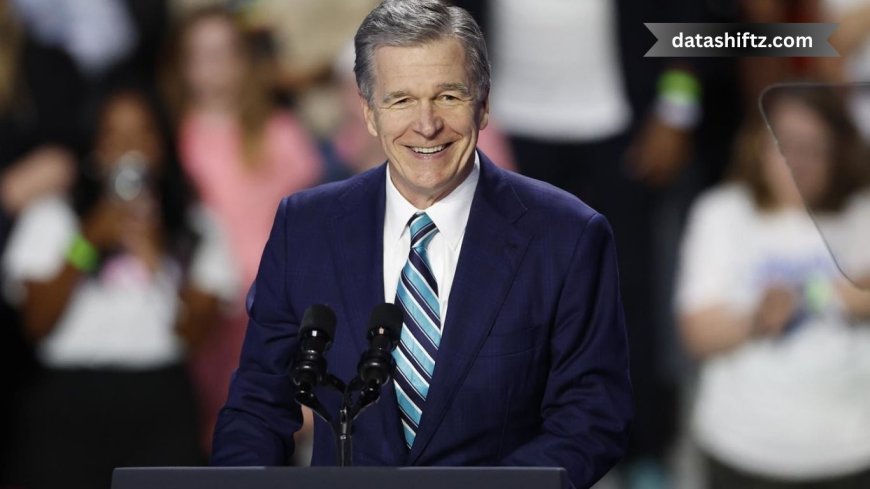Roy Cooper’s Senate Bid: A New Chapter in North Carolina Politics

Roy Cooper Enters 2026 Senate Race
Former North Carolina Governor Roy Cooper has officially announced his candidacy for the U.S. Senate seat in the 2026 election, aiming to succeed retiring Republican Senator Thom Tillis. This development comes after official retirement news from Tillis, triggered in part by internal conflict with former President Trump over Medicaid cuts.
In a video released on July 28, 2025, Cooper framed the campaign around saving and rebuilding the middle class, accusing corporate elites of grabbing wealth at the expense of working Americans. Widely regarded as the Democrats’ strongest recruit, Cooper brings nearly 40 years of statewide service and name recognition to a race analysts expect to be high‑stakes and highly competitive.
Context & Competitive Landscape
Political opponents and dynamics
On the Republican side, Michael Whatley, Chair of the Republican National Committee, has secured President Trump’s endorsement and is expected to enter the race shortly after Lara Trump declined to run. Lara Trump’s withdrawal cleared the path for a likely head‑to‑head matchup between Cooper and Whatley.
This Senate seat is now one of a handful seen as crucial for control of the U.S. Senate. Republicans currently hold a slim 53‑47 majority, and Democrats must net four seats to regain control in 2026.
Polling and strategic implications
Polling in early to mid‑2025 showed Cooper leading former Senator Tillis in hypothetical matchups by a small margin (44 % to 46 %) with about 10 % undecided. His entry is widely hailed by national Democrats as boosting their pick‑up chances in a race that could be pivotal for the majority party.
Roy Cooper’s Record & Policy Legacy
Achievements as Governor
During his two terms (2017–2025), Cooper stewarded several major policy initiatives:
-
Medicaid expansion: Enabled health insurance for over 600,000 North Carolinians, after decades of effort.
-
Clean energy and infrastructure: Spearheaded economic development, securing billions in federal funding for high‑speed internet, transportation improvements including a $1.1 billion rail grant, and clean energy investments like new battery manufacturing plants.
-
Education: Emphasized public schools, teacher funding, and condemned voucher expansion and other legislative moves he saw as misguided.
Cooper’s final State‑of‑the‑State address praised bipartisan successes but warned against legislative cultural‑wars—such as abortion restrictions or limits on classroom instruction about race and gender—that he argued threatened economic growth.
Challenges and criticisms
Despite accomplishments, Cooper faced significant resistance from a GOP legislature. All his vetoes (19 in his final legislative year) were overridden, including on abortion, board appointments, and private school vouchers. Critics also pointed to perceived slow disaster recovery—especially following hurricanes—and spending overruns tied to his administration’s transportation projects.
Updates at a Glance
| Aspect | Details |
|---|---|
| Senate run announced | Roy Cooper officially launched Senate campaign July 28, 2025 for NC seat |
| Opponent lineup | Major GOP opponent expected to be Michael Whatley, backed by Trump |
| Strategic importance | Key pick‑up target for Democrats; Senate toss‑up as per analysts |
| Cooper’s strengths | Medicaid expansion, infrastructure, and public education leadership |
| Criticisms | Legislative override of vetoes, schooling policy disputes, disaster recovery performance |
Why Cooper Matters in 2026
-
Proven statewide appeal: Served as Attorney General for 16 years and two-term Governor, with broad name recognition.
-
Track record on health care: Led Medicaid expansion benefiting hundreds of thousands of residents.
-
Economic leadership: Guided North Carolina through economic and infrastructure growth, especially in clean‑energy sectors.
-
Policy moderation: Advocated bipartisan projects, though opposed cultural‑war legislation seen as divisive and job‑deterring.
-
Strong Democratic signal: Elevates NC Democrats’ prospects in a race where they must flip multiple seats to regain Senate control.
Conclusion
Roy Cooper’s entrance into the 2026 Senate race frames North Carolina as a critical battleground for control of the U.S. Senate. With a strong governance record, broad appeal, and high‑stakes national implications, Cooper could redefine the trajectory of Democratic chances in a tight election cycle.



























